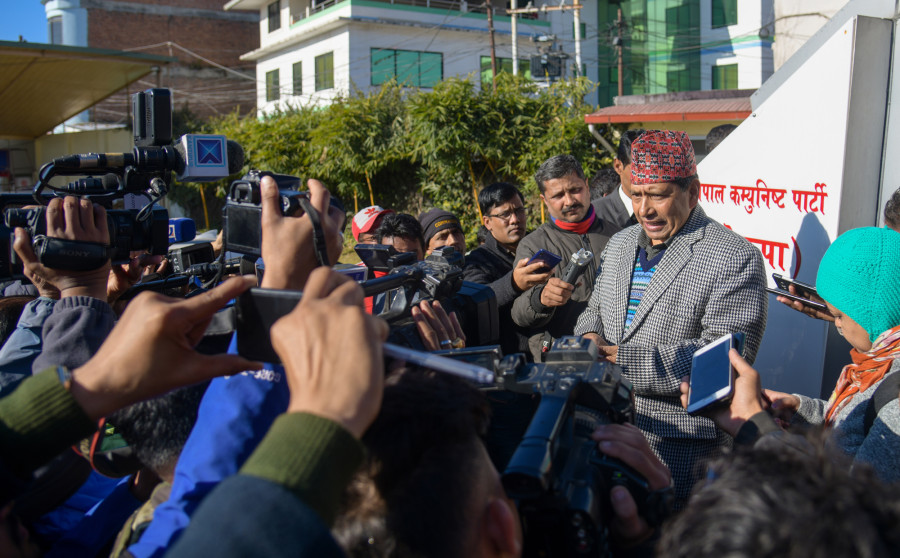Politics
Nepal Communist Party standing committee meet shelves issues for central committee
Though the ruling party’s meeting was expected to discuss and decide on crucial issues, it deferred them all to the upcoming central committee meeting.
Tika R Pradhan
The standing committee meeting of the ruling Nepal Communist Party concluded on Sunday, without deciding on major contentious issues, which will now be discussed at the upcoming central committee meeting. The party has scheduled a meeting of its central committee for January 8.
Party insiders, however, said they are not optimistic about the upcoming meeting, as they will likely not have enough time for discussion, a mandatory procedure before decisions are taken, in the 445-strong committee.
Outstanding issues include the party’s political ideology, the formation of its politburo, making the secretariat and other party committees inclusive, controversial issues regarding Yeti Holdings and the Baluwatar land grab.
According to standing committee member Beduram Bhusal, executive co-chair Pushpa Kamal Dahal told the meeting that opening discussions on the party’s political ideology could create problems. So discussions would only be opened before the party’s national convention.
Despite the ongoing controversy over the Millenium Challenge Corporation’s Nepal compact, under which the United States will provide $500 million to Nepal, the standing committee meeting also decided to leave it for the party secretariat to decide.
The standing committee meeting, held after the gap of one year, was expected to take decisions on most major issues that party leaders have been raising for a long time now.
Leaders said they wanted the meeting to at least narrow down issues and hold ample discussions. Neither happened.
According to one leader, a barrage of questions and criticism aimed at the leadership served to put it on the backfoot, leading top leaders to decide to defer contentious issues to the central committee.
Mani Thapa, a standing committee member, said that the party secretariat was caught unawares when it faced tough questions from standing committee members.
In the 45-member standing committee, nine are from the secretariat, which so far has been the sole decision-making body in the one-and-a-half-year-old party.
“The other reason is that C0-chair KP Sharma Oli was not present in the meeting,” Thapa told the Post. “That’s because the leadership decided to call the central committee meeting earlier than what was proposed in the political document.”
A political document presented by Co-chair Dahal on December 15 had proposed the central committee meeting in the third week of January.
More than a-year-and-a-half since the merger, the Nepal Communist Party (NCP) is still struggling to complete its unification process.
The formation of the politburo, a crucial committee in any communist party, is a significant part of party unification. More than 40 central committee members had demanded about a year ago that the politburo be formed immediately. But the standing committee failed to properly discuss the agenda, said Thakur Gaire, a central committee member.
A decision on politburo formation is unlikely during the central committee meeting too, as the party leadership will have a tough time managing leaders from different factions to constitute the 145-member committee.
“The central committee meeting should ensure that there is ample discussion on issues,” said Ramdip Acharya, a central committee member. “The meeting must not be like a coaching class where a handful of leaders speak and others just listen without getting a chance to question or debate.”
The standing committee meeting was unable to take a decision on a proposal presented by Asta Laxmi Shakya and Pampha Bhusal, the two female members in the 45-member committee, to expand the secretariat and make it more inclusive.
The leadership flatly rejected the proposal and decided to send the issue to the central committee, said Shakya.
Though most of the members see the holding of the standing committee meeting as a positive move, further steps taken by the leadership will help put the party on course, they said.
“Given the sheer size of the central committee, all issues may not get addressed during the January meeting,” said Thapa. “Now it’s time to wait and see whether the leadership will implement what they have promised in the standing committee.”




 19.12°C Kathmandu
19.12°C Kathmandu















